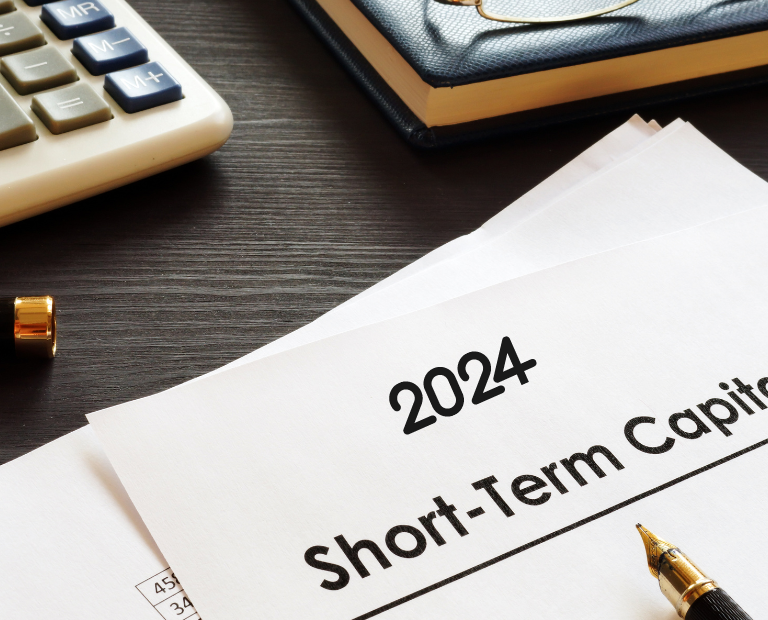Investors, especially those active in the stock market, often deal with the complexities of capital gains taxes. A recent update on the income-tax portal states that short-term capital gains (STCG) do not qualify for any tax rebates. This update is crucial for taxpayers aiming to maximize their returns while complying with tax laws. This article will explain this announcement’s impact, short-term capital gains, and how investors can manage their tax burden.

What are Short-term capital gains?
Short-term capital gains arise from the sale of an asset held for a short period. For equity shares and mutual funds, this period is typically less than one year. These gains are taxed differently compared to long-term capital gains (LTCG), which benefit from lower tax rates due to the longer holding period.
The rationale behind this tax structure is to encourage long-term investments over short-term speculation. Short-term capital gains are taxed at a higher rate, reflecting the higher risk and volatility associated with short-term investments.
Tax Rates On Short Term Capital Gains
The tax rate on short-term capital gains depends on the type of asset and the taxpayer’s overall income. For equity shares and equity-oriented mutual funds, the short-term capital gains tax rate is 15%. This is applicable irrespective of the taxpayer’s income slab, making it a flat rate.
For other assets, such as real estate or debt mutual funds, short-term capital gains are added to the taxpayer’s income and taxed according to their applicable income tax slab rate. This means that high-income earners could end up paying significantly more in taxes on these gains.
The Recent Announcement: No Tax Rebate
The income-tax portal’s recent announcement highlights that no tax rebate is available for short-term capital gains. This is a crucial point for taxpayers who might have hoped to reduce their tax liability through various rebate options available under the Income Tax Act, such as Section 80C deductions.
Impact On Investors As Short Term Capital Gain
This clarification affects individual investors and traders who actively buy and sell assets within short periods. Without the benefit of tax rebates, the effective tax rate on short-term capital gains can significantly reduce the net returns from such investments.
For instance, an investor in the 30% tax bracket earning short-term capital gains from debt funds or real estate will pay taxes at their marginal rate. In contrast, the same investor would benefit from a significantly lower tax rate on long-term capital gains from similar investments.

Strategies to manage Short-term Capital Gain Tax
Given the lack of tax rebates on short-term capital gains, investors need to adopt strategies to manage their tax liabilities effectively:
Holding Period Strategy: Extending the holding period of investments to qualify for long-term capital gains tax can result in substantial tax savings. Investors should evaluate the potential benefits of holding assets for a longer duration before making sell decisions.
Tax-Loss Harvesting: This strategy involves selling underperforming investments at a loss to offset the gains from other investments. The losses can be used to reduce the taxable amount of capital gains, effectively lowering the overall tax liability.
Diversification: Diversifying investments across different asset classes can help manage risk and optimize tax outcomes. By balancing equity investments with other asset types, investors can better navigate the tax implications of short-term gains.
Consulting Tax Professionals: Given the complexities of capital gains taxes, consulting with tax professionals can provide tailored advice and strategies. Professionals can help navigate the intricacies of tax laws and identify opportunities for tax-efficient investment strategies.
Conclusion
The income-tax portal’s announcement that no tax rebate is available for short-term capital gains underscores the importance of strategic tax planning for investors. Understanding the tax implications of investment decisions and employing effective strategies can help mitigate the tax burden and maximize net returns.
Investors should stay informed about tax regulations and seek professional advice to navigate the complexities of capital gains taxes. By doing so, they can make informed decisions that align with their financial goals while ensuring compliance with tax laws.

